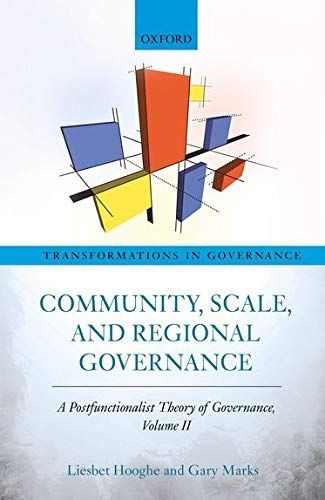
Community, Scale, and Regional Governance A Postfunctionalist Theory of Governance
Regions within states have become important features of the political landscape. The authority of regions varies more than that of states, and many regions play a distinctive role that sets them apart from other regions in the same country.This book asks why the structure of governance within states has become multilevel. We compare individual regions and regional tiers in 81 countries to explain salient features of regional governanceincluding the design of jurisdictions, the growth of differentiated governance, and the authority of regions. The authors theorize that jurisdictional design is shaped by two factors: the functionalpressures that arise from the logic of scale in providing public goods, and the preferences that communities have regarding self-government. Whilst functional pressures are enduring, the authors argue that one must engage human passions regarding self-rule to explain variation in the structures of rule over time and around the world.